There was a lovely response to last week’s post looking back on ten years of the Literary Sofa and since book selections have always been a big part of what I do here, I hope you’ll enjoy this post with the carefully worded title.
Why is that? Well, as I read around 80 books per year and my mission is to spread the word about those I particularly rate, you can imagine what an impossible task it proved to pick ten absolute favourites (I almost gave up). It feels like I’m cheating on at least 40 others which have really touched and inspired me, and I’ve only managed it at all by restricting myself to novels, a single French book and no translations. I haven’t included anything I’ve read this year because it would break those rules and they will get their moment in my Books of the Year post in December.
So here are the ten I chose and why.
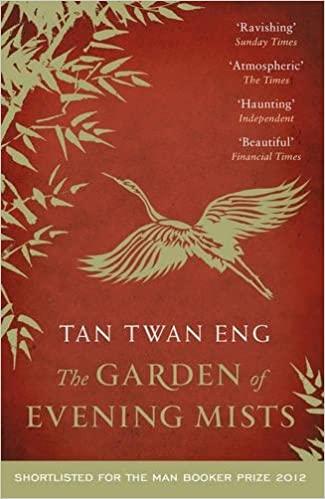
In the highlands of Malaya, a woman sets out to build a memorial to her sister, killed at the hands of the Japanese during the brutal Occupation of their country. Yun Ling’s quest leads her to The Garden of Evening Mists, and to Aritomo, a man of extraordinary skill and reputation, once the gardener of the Emperor of Japan. When she accepts his offer to become his apprentice, she begins a journey into her past, inextricably linked with the secrets of her troubled country’s history.
WHY I CHOSE IT: An unusual and deeply moving story, delivered in the most sublime prose. I’ve traveled a lot and love discovering new places or revisiting those I know through reading but this novel is one of very few which directly inspired a trip somewhere I might never have gone, the Cameron Highlands in Malaysia. I also read the author’s debut The Gift of Rain when I was in Penang, where it is set – another superb literary novel.
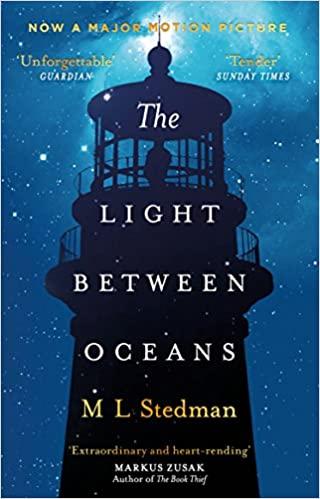
A boat washes up on the shore of a remote lighthouse keeper’s island. It holds a dead man – and a crying baby. The only two islanders, Tom and his wife Izzy, are about to make a devastating decision.
WHY I CHOSE IT: This novel had a head start with me as someone who loves lighthouses and the sea. It probably sounds like a strange recommendation but this is the only book I’ve ever read which repeatedly made me sob, and so did the film (though I had to rein it in at the cinema.) I felt so much for all of the protagonists in an impossible situation. The author’s second novel is a long time coming but this must be an extremely hard act to follow.
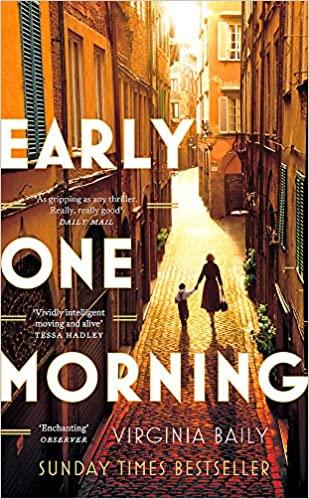
A gray dawn in 1943: on a street in Rome, two complete strangers lock eyes for a single moment. Chiara Ravello is about to flee the occupied city for the safety of her grandparents’ house in the hills. The other woman has been herded on to a truck with her husband and young children. Loudly claiming the woman’s son as her own nephew, Chiara demands his immediate return; only as the trucks depart does she begin to realize what she has done. She is twenty-seven, single, with a sister who needs her constant care, a hazardous journey ahead of her, and now a child in her charge – a child with no papers who refuses to speak. Three decades later, Chiara lives alone in Rome, but always in the background is the shadow of Daniele, the boy from the truck, whose absence haunts her. When she receives a phone call from a teenage girl claiming to be his daughter, it’s time to face up to the past.
WHY I CHOSE IT: 2016 was an amazing year for me with the release of my own debut Paris Mon Amour and two novels I couldn’t stop raving about (see also next on this list). Virginia Baily’s passion for Italy reminded me of mine for France and the historical context come across so vividly in this atmospheric and heartrending story. I loved the writing and the ending – I often can’t remember them, even in books I’ve loved – was perfectly executed. This novel taps into my fascination with the life-changing power of randomness.
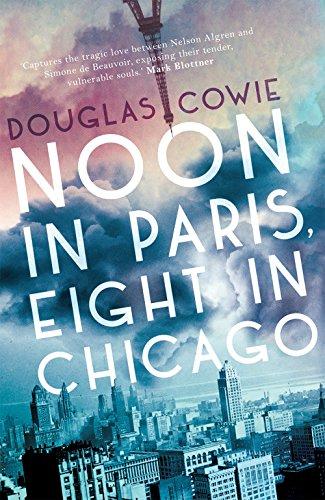
Sharp and intimate, Douglas Cowie’s reimagining of the turbulent love affair between Simone de Beauvoir and Nelson Algren asks what it means to love and be loved by the right person at the wrong time. Chicago, 1947: on a freezing February night, France’s feminist icon Simone de Beauvoir calls up radical resident novelist Nelson Algren, asking him to show her around. After a whirlwind tour of dive bars, cabarets and the police lockup, the pair return to his apartment on Wabansia Avenue. Here, a passion is sparked that will last for the next two decades. Their relationship intensifies during intoxicating months spent together in Paris and Chicago. But in between are long, anguished periods apart filled with competing desires lovers old and new, writing, politi, gambling which ultimately expose the fragility of their unconventional marriage and put their devotion to the test.
WHY I CHOSE IT: This novel combines a lot of things that interest me: France (obviously), feminism, the Existentialists and unconventional relationships, of which Beauvoir had two on the go simultaneously. This book explores the one most people haven’t heard about – and nor had I – with great sensitivity and imagination, capturing the wrenching impossibility for some people of choosing one life or love over another. For all her ground-breaking achievements, there are reasons why Simone de Beauvoir doesn’t belong on a pedestal and this beautifully written novel underlines the ways in which she was as human as the rest of us.
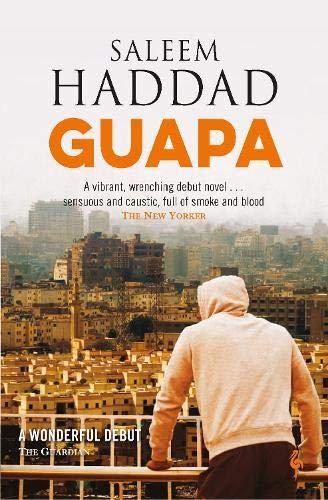
Rasa works as an interpreter for Western journalists by day and divides his nights between the Guapa, an underground nightclub where the city’s clandestine LGBT community congregates, and his secret lover Taymour. Every night Taymour sneaks into the house Rasa shares with his overbearing grandmother, the woman who raised him. When she finds them in bed together on the eve of Taymour’s wedding day, all hell breaks loose. That same day Rasa learns his best friend, the famous drag queen Majid, has been arrested by the police. Unable to go home, afraid for Majid’s fate, and heartbroken by Taymour’s determination to keep living a double life, Rasa’s fragile balance collapses, while all around him the brief, intense season of public protest is cut short by the regime’s repression and the rapid rise of the hard-line Islamist movement.
WHY I CHOSE IT: This intense, immersive novel set over 24 hours during the Arab Spring made a lasting impression on me for its intimate and empathic portrayal of a young man experiencing alienation of many kinds – Rasa’s story has genuine emotional clout. Saleem Haddad’s extended essay on Shelving the Gay Novel is one of the best guest pieces I’ve hosted – little did I know that I’d be posing in Gay’s the Word with my own queer novel four years later.
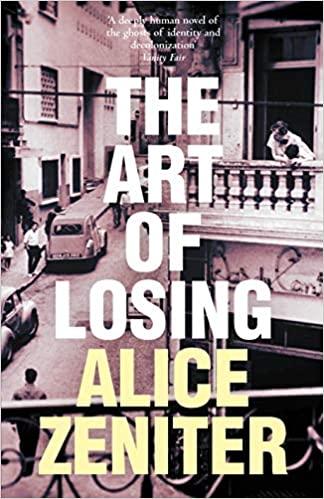
Naïma has always known that her family came from Algeria but her knowledge of that foreign country is limited to what she’s learned from her grandparents’ tiny flat in a crumbling French sink estate: the food cooked for her, the few precious things they brought with them when they fled. Why was her grandfather Ali forced to leave? Was he an harki – an Algerian who worked for and supported the French during the Algerian War of Independence? Once a wealthy landowner, how did he become an immigrant scratching a living in France? Naïma’s father, just a child when the family left, says he remembers nothing. Finally, one of them is going back: Naïma will see Algeria for herself and ask the questions that have remained unanswered for so long.
Why I chose it: I devoured this family history spanning 70 years when it first came out in French and it is simply one of the finest novels I have ever read, an important story which is simultaneously francocentric and universal on identity, intergenerational trauma and the legacy of colonialism. This novel set me on a path to learning more about a dark and shocking period of history which continues to have profound repercussions on every aspect of French life. For other French novel recommendations, see this recent post.
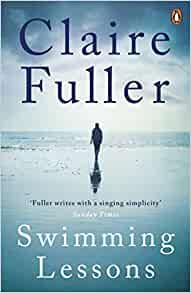
Ingrid writes letters to her husband Gil about their life together. But instead of giving them to him, she hides each in the thousands of books Gil has collected. Despite their two daughters, despite their beautiful but dilapidated house by the sea, despite Gil’s talent as a writer, their marriage has been troubled. When Ingrid has written her final letter she disappears from a Dorset beach. Twelve years later her adult daughter Flora comes home to look after her injured father. Secretly, Flora has never believed that her mother is dead, and she starts asking questions, without realizing that the answers she’s looking for are hidden in the books that surround her.
WHY I CHOSE IT: Reading four novels by the same author has been a rare occurrence for me over the last decade and it says a lot about Claire Fuller’s literary trajectory that she’s keeping the company of Elena Ferrante (tr. Ann Goldstein) and Edward St Aubyn. It was a toss-up between her second and third novels but in the end I chose Swimming Lessons over Bitter Orange for the great Dorset setting and the complex portrayal of a dysfunctional family, one of my favorite themes, at which she excels (try writing a novel about any other kind.) I love the highly visual and multi-sensory quality of her prose which brings an artist’s eye to writing.
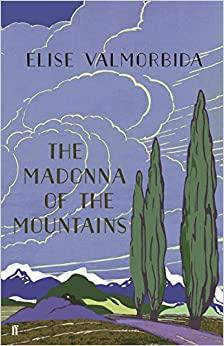
Maria Vittoria is embroidering a sheet for her dowry trunk. Her father has gone to find her a husband. He’s taken his mule, a photograph and a pack of food: home-made sopressa sausage, cold polenta, a little flask of wine – no need to take water – the world is full of water. There are no eligible men in this valley or the next one, and her father will not let her marry just anyone. Despite Maria’s years, she is still healthy. Her betrothed will see all that. He’ll be looking for a woman who can do the work. And the Lord knows Maria will need to be able to work. Fascism blooms as crops ripen, the state craves babies just as the babies cry for food. Maria faces a stony path, but one she will surely climb to the summit.
WHY I CHOSE IT: The writing is pure indulgence in this earthy and sensual novel in which the beauty and rhythms of the natural world contrast sharply with the hardship and evil of the political climate. This novel contains one of my favorite protagonists of the decade in Maria, a passionate and determined woman I empathised with, and one of the most melting sex scenes – and I’ve read (and written) a fair few.
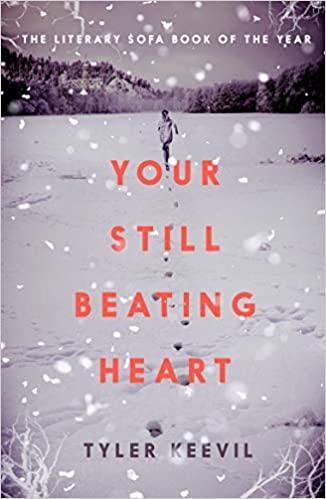
All it takes to change a life is a single moment: a random stabbing on a London bus leaves a young woman stripped of a future that should have been hers and propels her into a life skewed out of all recognition. Bethan is anti-heroine we root for – flawed, vulnerable, and uncomfortably familiar. In Prague, the city where she and her husband got engaged, a chance meeting leads to an intriguing proposition. There’s a small job for someone like her: someone without a criminal record or personal connections; someone willling to take a minor risk. All she needs to do is pick something up, and drive back. Just once. Only ever once. Her mission takes her to a place where life is cheap and sordid deals are done. Risking her own life to save another, she must confront unspeakable evil and outrun those who would betray her. 148
WHY I CHOSE IT: Since my praise for this novel is emblazoned on the front and back covers of the paperback edition, I will only repeat that this was my overall Book of 2020 and has the emotional heft of a character-driven literary novel despite being a palpitation-inducing page-turner, a rare combination. (Except to add that this book deserves prizes.)
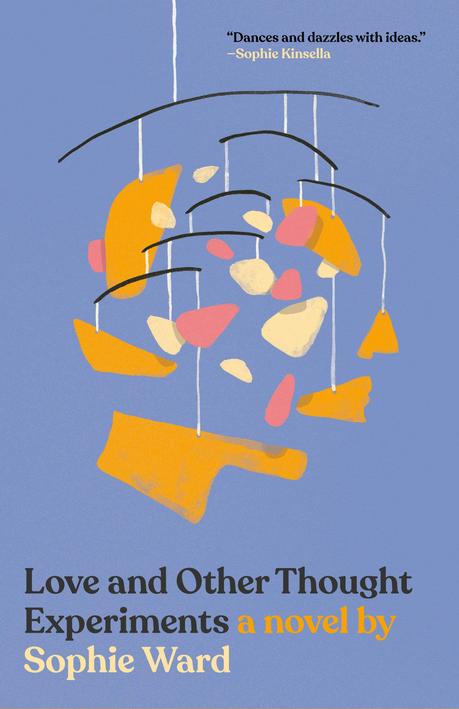
Rachel and Eliza are planning their future together. One night in bed Rachel wakes up terrified and tells Eliza that an ant has crawled into her eye and is stuck there. Rachel is certain; Eliza, a scientist, is sceptical. Suddenly their entire relationship is called into question. What follows is a uniquely imaginative sequence of interlinked stories ranging across time, place and perspective to form a sparkling philosophical tale of love, lost and found across the universe.
Inspired by some of the best-known thought experiments in philosophy, particularly philosophy of mind, Love and Other Thought Experiments is a story of love lost and found across the universe.
WHY I CHOSE IT: Everything about this is different to the norm: the structure, the use of time, the way it intentionally messes with the reader in a way that feels quite personal. It takes philosophical abstractions and spins them into intensely human and relatable experiences. It’s rare for me to fall for a novel that could be called experimental but this genuinely blew my mind. It’s also encouraging to see an overtly intellectual book do well despite the general wariness towards that approach in this country (at least that’s my perception compared with France.)
I’d love to hear which books have left the biggest mark on you in the last ten years.
*POSTSCRIPT*
Next week is another big one on the Sofa when I’ll be hosting the Book Pitch Spotlight. If you want to enter, time is running out – closes 30 September.

